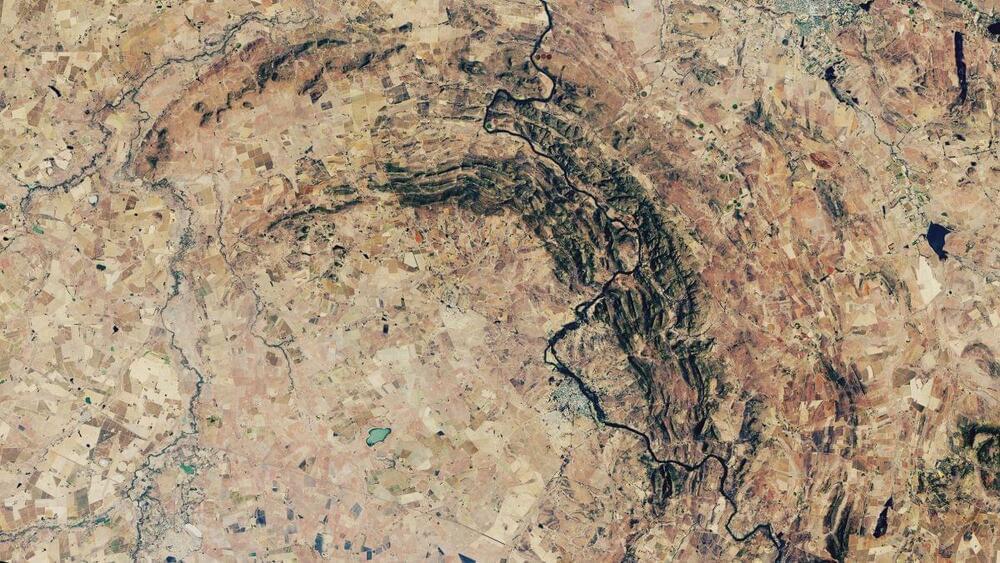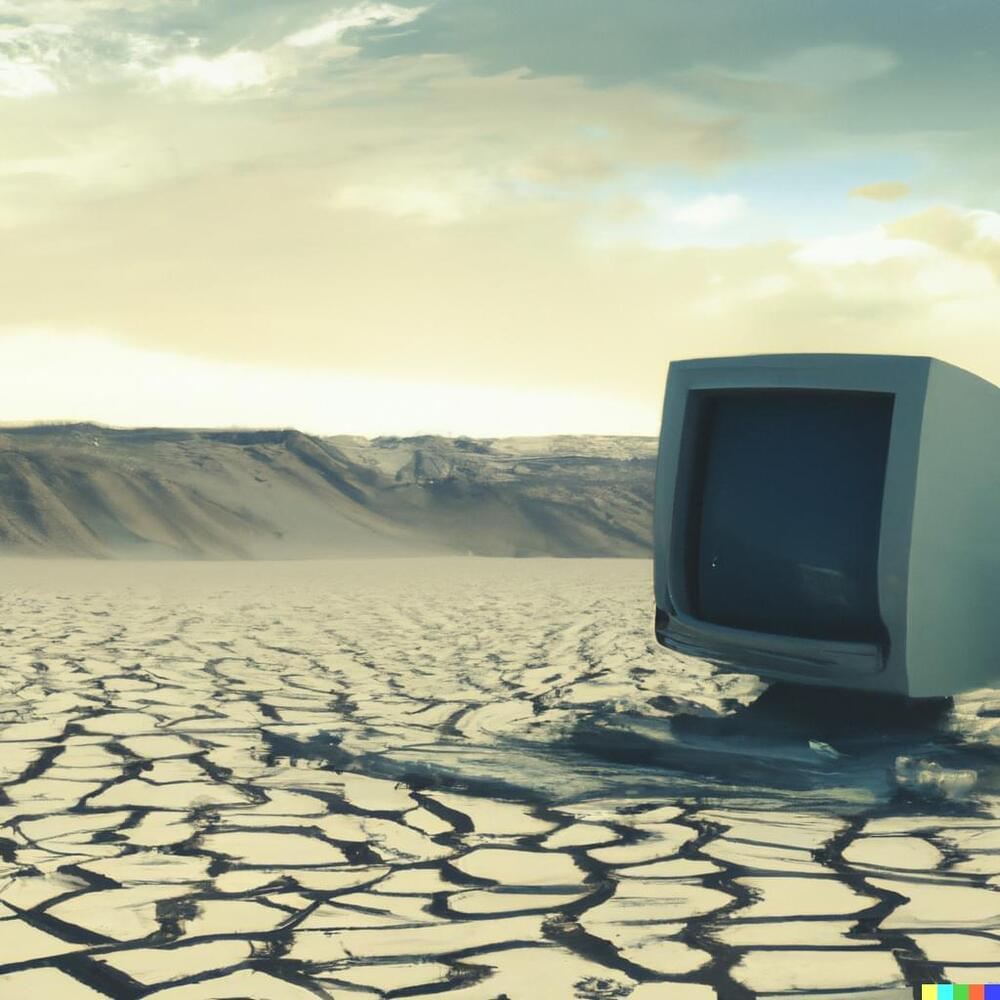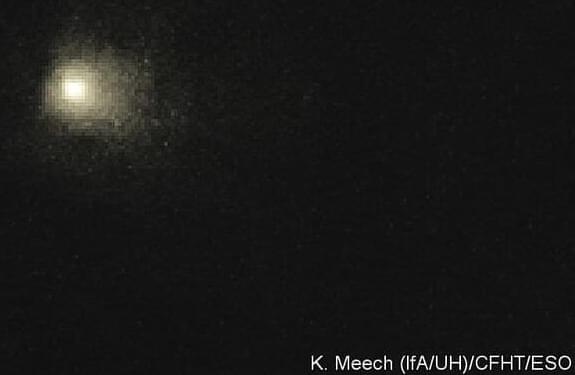New research suggests that the asteroid responsible for forming Earth’s largest impact crater was even bigger than researchers had previously estimated.


How likely is it that we live in a simulation? Are virtual worlds real?
In this first episode of the 2nd Series we delve into the fascinating topic of virtual reality simulations and the extraordinary possibility that our universe is itself a simulation. For thousands of years some mystical traditions have maintained that the physical world and our separated ‘selves’ are an illusion, and now, only with the development of our own computer simulations and virtual worlds have scientists and philosophers begun to assess the statistical probabilities that our shared reality could in fact be some kind of representation rather than a physical place.
As we become more open to these possibilities, other difficult questions start to come into focus. How can we create a common language to talk about matter and energy, that bridges the simulated and simulating worlds. Who could have created such a simulation? Could it be an artificial intelligence rather than a biological or conscious being? Do we have ethical obligations to the virtual beings we interact with in our virtual worlds and to what extent are those beings and worlds ‘real’? The list is long and mind bending.
Fortunately, to untangle our thoughts on this, we have one of the best known philosophers of all things mind bending in the world, Dr. David Chalmers; who has just released a book ‘Reality+: virtual worlds and the problems of philosophy’ about this very topic. Dr. Chalmers is an Australian philosopher and cognitive scientist specialising in the areas of philosophy of mind and philosophy of language. He is a Professor of Philosophy and Neuroscience at New York University, as well as co-director of NYU’s Center for Mind, Brain and Consciousness. He’s the founder of the ‘Towards a Science of Consciousness Conference’ at which he coined the term in 1994 The Hard Problem of Consciousness, kicking off a renaissance in consciousness studies, which has been increasing in popularity and research output ever since.
Donate here: https://www.chasingconsciousness.net/episodes.
What we discuss in this episode:
00:00 Short Intro.
06:00 Synesthesia.
08:27 The science of knowing the nature of reality.
11:02 The Simulation Hypothesis explained.
15:25 The statistical probability evaluation.
18:00 Knowing for sure is beyond the reaches of science.
19:00 You’d only have to render the part you’re interacting with.
20:00 Clues from physics.
22:00 John Wheeler — ‘It from bit’
23:32 Eugene Wigner: measurement as a conscious observation.
27:00 Information theory as a useful but risky hold-all language tool.
34:30 Virtual realities are real and virtual interactions are meaningful.
37:00 Ethical approaches to Non-player Characters (NPC’s) and their rights.
38:45 Will advanced AI be conscious?
42:45 Is god a hacker in the universe up? Simulation Theology.
44:30 Simulation theory meets the argument for the existence of God from design.
51:00 The Hard problem of consciousness applies to AI too.
55:00 Testing AI’s consciousness with the Turing test.
59:30 Ethical value applied to immoral actions in virtual worlds.
References:

Scientists say that Earth’s trees are facing an unprecedented level of extinction and humanity should be worried. The state of our world’s trees has been an ongoing issue for decades now. But, that issue seems to be getting worse, and now we’re facing a massive extinction level issue that could threaten entire ecosystems.
Trees play an important role in the various ecosystems that cover our planet. Last year, a team of researchers released a paper titled State of the World’s Trees, which looked at how the loss of some tree species has affected entire ecosystems. Now, that same team of researchers has issued a warning as the ongoing issue with Earth’s trees has become even direr.
The research is backed by 45 additional scientists from over 20 different countries and outlines the many impacts that losing any of these tree species could have on the world. It isn’t just the local ecosystems that would be affected by these losses, either. The researchers say these losses will affect our livelihoods, economies, and food.

There must be some intelligent life out there or else it’s a terrible waste of real-estate.
The question “where is everyone?” is the crux of the Fermi Paradox. If life on Earth is not particularly special and unique, where are all the alien civilizations? Many explanations have been proposed to explain why we seem to be alone in the vast universe. None have been 100 percent convincing, and people continue to puzzle over a solution.
Russian physicist Alexander Berezin, from the National Research University of Electronic Technology (MIET), has another idea. He calls it the “First in, last out” solution of the Fermi Paradox. He suggests that once a civilization reaches the capabilities of spreading across the stars, it will inevitably wipe out all other civilizations.
The grim solution doesn’t hypothesize a necessarily evil alien race. Simply, they might not notice us, and their exponential expansion across the galaxy might be more important to them than what would happen to us.

Is this a sign of nuclear escalation?
A top-of-the-line Russian nuclear-powered submarine has gone missing from its harbor in the Arctic along with its rumored “doomsday weapon,” according to multiple reports.
NATO has reportedly warned members that Russia’s Belgorod submarine no longer appeared to be operating out of its White Sea base, where it has been active since July. Officials warned that Russia may plan to test Belgorod’s “Poseidon” weapons system, a drone equipped with a nuclear bomb that Russia has claimed is capable of creating a “radioactive tsunami,” according to Italian media.
The drone can be deployed from the submarine at any time and detonated at a depth of 1 kilometer near a coastal city. Russian state media has claimed the device can create a 1,600-ft. wave that smashes into the coast and irradiates it.

This might be gettin out of hand.
Ukrainian leader Volodomyr Zelensky has said that he believed Moscow was laying the groundwork for a possible nuclear attack.
“They begin to prepare their society. That’s very dangerous,” he told the BBC.
“They are not ready to do it, to use it. But they begin to communicate. They don’t know whether they’ll use or not use it. I think it’s dangerous to even speak about it.”
An exploration of what I think is one of the spookiest solutions to the Fermi Paradox that could explain SETI’s great silence.
My new clips and live channel:
https://www.youtube.com/channel/UCwwuMqY1SXZhTB5hIFFUmlg.
My Patreon Page:
https://www.patreon.com/johnmichaelgodier.
My Event Horizon Channel:

The end of classical Computer Science is coming, and most of us are dinosaurs waiting for the meteor to hit.
I came of age in the 1980s, programming personal computers like the Commodore VIC-20 and Apple ][e at home. Going on to study Computer Science in college and ultimately getting a PhD at Berkeley, the bulk of my professional training was rooted in what I will call “classical” CS: programming, algorithms, data structures, systems, programming languages. In Classical Computer Science, the ultimate goal is to reduce an idea to a program written by a human — source code in a language like Java or C++ or Python. Every idea in Classical CS — no matter how complex or sophisticated — from a database join algorithm to the mind-bogglingly obtuse Paxos consensus protocol — can be expressed as a human-readable, human-comprehendible program.
When I was in college in the early ’90s, we were still in the depth of the AI Winter, and AI as a field was likewise dominated by classical algorithms. My first research job at Cornell was working with Dan Huttenlocher, a leader in the field of computer vision (and now Dean of the MIT School of Computing). In Dan’s PhD-level computer vision course in 1995 or so, we never once discussed anything resembling deep learning or neural networks—it was all classical algorithms like Canny edge detection, optical flow, and Hausdorff distances. Deep learning was in its infancy, not yet considered mainstream AI, let alone mainstream CS.

► Subscribe: https://goo.gl/r5jd1FIf we consider our solar system is typical of billions and billions of other similar systems, then where are the extraterrestrials? The universe should be full of intelligent life by now that would create some kind of signal that is easy to detect…yet, we have seen and heard nothing. There is one possible solution to the unnerving silence of the cosmos, and it could be the most chilling answer to why we’ve heard from no one…because if an alien civilization does exist out there somewhere, they certainly know we are here…and that is something that should scare all of us. We are on social media:
www.facebook.com/destinymediaa.
www.instagram.com/destiny.media.yt/The Destiny voice:
www.TomsVoiceovers.co.ukSourses: https://pastebin.com/raw/e85ytNaa